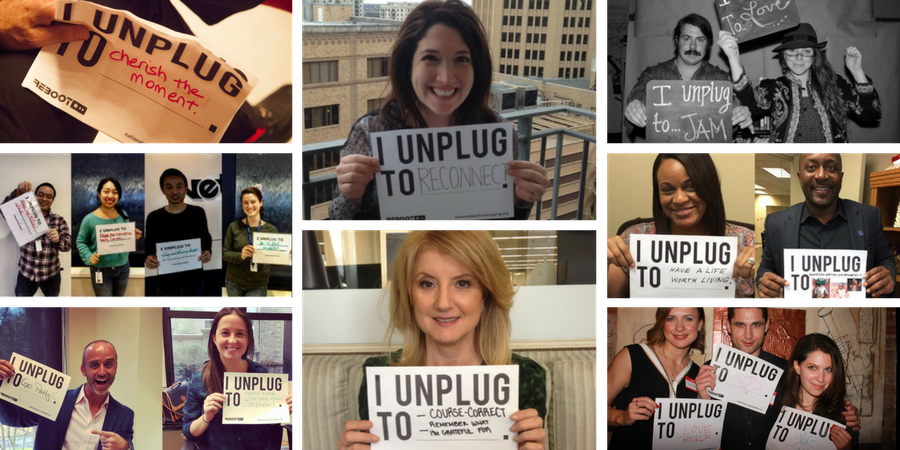It’s 6:00AM. My phone lays beside my bed, humming vibrations through the vinyl flooring of my condo. It chimes a cheery reminder that it’s time for me to get up and start my day. I roll over and aim to hit the large red snooze button. I’m not quite ready to leave the comfort of my sheets, and I purposely set my alarm 10 minutes earlier than it needs to be just for that opportunity. But before I can even hit snooze I see the notifications from the previous night. Three people have liked an Instagram I posted; my brother has Facebook’d me some pictures from his latest trip abroad; I have a meeting scheduled for 8:30AM; and 10 new emails have somehow accumulated amidst the dark hours of the night. I press snooze and spend the next five minutes thinking about what’s to come today. I roll out of bed before my phone gets the chance to buzz again. I’m wide awake.
This has essentially become my morning routine, as I imagine a similar routine unfolding across countless homes throughout our ever-increasingly connected world. It’s a sign of our times, something my university communication theory professor would likely dub the convergence of the public and private spheres of our lives. It’s all very post-post-modern. We are all plugged-in from the moment we awake, to the final check-in before we tuck ourselves in for the night. The separation between the outside world, and our inner world fades with every notification, every ping, every vibration, there’s no respite for our minds. We don’t pause anymore.
Being perpetually online, connected, has had its consequences on our brains. We seem addicted to the notifications, the likes, and the reminders that we are present and partaking in the great social network. Like a drug, our brains become accustomed to the little shots of pleasure we receive every time we’re acknowledged. If you’re not connected, if you don’t have Facebook, if you’re not hashtagging, then you’re not in the club, you’re missing out on the party. I mean, look at how much fun everyone else is having. Look at how great their lives are. Being disconnected, even just for a moment, can cause anxiety. And we’ve all felt it. Admit it. You misplace your phone, leave it behind somewhere, and immediately panic. I’m old enough to remember a time before the internet, before social media, before cell phones, before pagers, and we seemed to get along just fine. Something has changed. Our wiring has changed.
Enter the Internet to save us from the Internet. #nationaldayofunplugging

The National Day of Unplugging, an event founded a year ago by Reboot, an organization focused on celebrating the arts, humour, food, philosophy, and social justice, occurs from sundown on March 9th to the sundown of March 10th. And we’re being asked to do just that, unplug ourselves from the distractions and technology of modern world, and reconnect ourselves with ourselves, with others, with community, and with nature (sans electronics). The idea is that by unplugging, we open ourselves up to the moment, and to the people and places around us. And for just a moment, we forget all the likes, the hashtags, and the newsfeeds. It’s a detox of sorts, meant to remind us what it is to be human and to be present.
But wait… Disconnecting, disengaging, not consuming, not watching – from a marketing standpoint… seems askew. After all, I write this piece from my desk at an advertising agency which focuses heavily on digital, its capabilities, and what it achieves for our clients. Recommending we all disconnect costs us eyes, engagement, and conversions. What brand in their right mind would get behind such a thing? Well, dozens, in fact. Some seem obvious, like The New York Times and The Washington Post, which might have an ulterior motives for recommending people turn off their devices in favour of picking up a good ol’ fashion newspaper. That’s just the cynic in me. Brands like NBC, CBS, Vogue, and Mashable would have seem to have less reasons to promote the day, and yet, they all are. There’s even an app to help you disconnect – the irony is not lost on its makers.
The reality is brands should be embracing this movement. Why? Have you ever walked from a dark movie theatre into the light of the lobby and felt the sting of the brightness? Turned the bathroom light on in the morning and had to cover your eyes as they adjust? When we inundate ourselves with messaging, the messages have less-and-less impact. By disconnecting ourselves, resetting our brains, even just for a short time, we level-set, and we become open to receiving something new. We might even be surprised by what we see. What’s better for any brand than being seen with fresh eyes and open hearts? If all we saw all day was Coca-Cola red, the red becomes white noise, it loses any impact. We have to close ourselves off from the interconnectivity of our digital world from time to time in order to open ourselves to new messages, ones that will register with impact, rather than get lost in the Sea of Digital Discourse.
So relax, turn off, smile, and take a deep breath. The Internet will still be there tomorrow, hashtags et al.